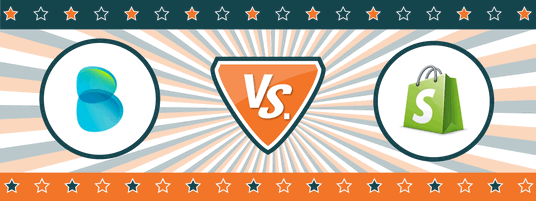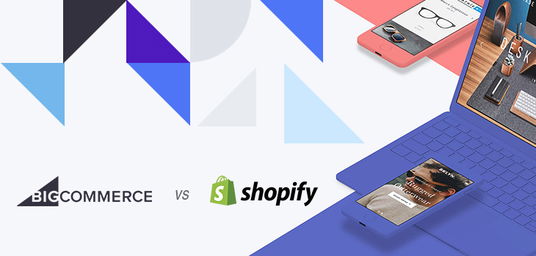Bigcommerce Vs Shopify: A Service Wise Comparison

Not the easiest of tasks really. What you have with these two giants a possible deadlock between the finest two CMS applications online for at least the next half a decade more. With services, we like to talk about all sorts of features. We talk about pricing, we talk about backend, frontend, extensibility and hosting support. And an informed customer looking to get into the e-commerce side of the fra will always be in the advantage if you can market either of CMS solutions whilst informing them of the features and drawing up the benefits.
To be fair Bigcommerce and Shopify both target a market that focuses on creating bigger online shopping brands with a customizable set of features in their shopping carts. The comparison makes sense because it is easy to get the two services confused so as providers of both of the services we hope that this map will make some of the more frequently asked questions clearer.
Pricing
“Shopify’s starter plan is only $14 compared to the BigCommerce’s $29.95 starter (‘silver’) plan – significantly cheaper. However, the Shopify starter plan restricts the number of products you can sell to 25 (versus an unlimited number with Bigcommerce) and limits your ability to edit your shop’s theme via CSS and HTML. A fairer comparison is really between Shopify’s ‘basic’ plan, which costs $29 per month, and the Bigcommerce ‘silver’ one – they are virtually the same price (Bigcommerce recently reduced the silver plan from $35.95 to $29.95, for the record – I wonder why…). Both these plans offer unlimited products, with Bigcommerce probably winning slightly in terms of features (you get more file storage, gift cards, real time shipping quotes and a built in ratings and review system – although not unlimited bandwidth, something which comes as standard on all Shopify plans). Up until recently Bigcommerce had a trick up its sleeve which in my view put it well ahead of Shopify when it came to its cheaper plans – the lack of transaction fees. Sadly Bigcommerce have now introduced transaction fees on their silver plan, but they are slightly lower – 1.5% compared to Shopify’s 2.0%.” – Chris Singleton
Shiopify’s starter pack it lets you pick the basic services at a very reasonable price. Whereas BigCommercestarts off the bat with the silver package.BigCommerce likes to cater to the more seasoned or serious players in the e-commerce game so the preliminaries are not much needed. Shopify does edge up on bandwith when you climb up the equal price though, which is where the services get interesting.
Frontend and Backend
“BigCommerce offers a quite impressive variety of options – 10 tabs for every product -, however you might not need all of them, depending on your product portfolio or store size. It requires quite some time of orientation to find out how to use this power. (What is the difference between custom fields and configurable fields? Do you need bulk pricing, date-related options, …?)”
In both cases BigCommerce offers the breadth in service whereas Shopify goes for a customizable experience. Shopify’s interface is intuitive whereas BigCommerce needs some getting used to when we talk about features.
Similarly in the front end department too BigCommerce focuses on being the more informative interface, displaying more and trying to empower the user more. Whereas Shopify goes for the intuitive feel, almost giving a visually enriching look to the website, not unlike a virtual store in fact.
Hosting and Extensibility
This is where Shopify’s extended Content centers come in handy and edges over BigCommerce. Shopify’s hosting thus becomes more secure as well over which we can talk BigCommerce’s complicated data center becoming the bane of its hosting.
In terms of add ons as well Shopify offers you a range within at least 140 initial applications which all connect with the Shopify API. This gives you some great customizing and experimenting ideas within Shopify. And all of this is doable without too much documentation because of how intuitive Shopify is to use.
Verdict
It quite clearly is about the kind of requirements and priorities you set for you retail brand. If you are interested in going in with a lot of products and numbers then Bigcommerce –as the name suggests is for you. Shopify on the other hand is better suited for businesses who want to go into a rather niched online shopping base and sell products pertaining to that niche. The budgeting varies so Shopify does in fact come under larger budget plans too but for increased number of products, you gradually increment in Shopify.
Overall, two giants in the CMS arena that wont get replaced too soon.
Written byPublished February 09, 2015

Anisha Bhandari
